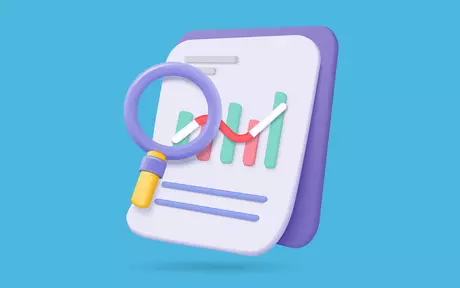Finding solutions to common Unit4 Financials by Coda Cloud Migration queries – A Unit4 Webinar with Millennium Consulting
In a recent webinar, we were joined by Chris Peall from Millennium Consulting, one of Unit4’s partners, who answered some common queries for those considering moving their Unit4 Financials by Coda system to the Cloud.
The process of system migration can be worrisome and can be fraught with natural anxieties related to losing familiar processes.

This is exactly why Unit4 partners with Millennium Consulting, to ensure that we can support our customers the best we can through Cloud migration and provide that guiding light through digital transformation.
In this blog, we will cover the highlights of Chris’ presentation and the advice he gives to overcome the common queries that an organization may have when migrating their Unit4 Financials by Coda system to the Cloud – keep reading to find out.
What does Cloud Migration look like?
A great way to ease anxiety during Cloud migration is to understand what the process entails, how long it may take, and how you can reduce variables in this process.
As Chris points out, this all starts with Cloud Migration Assessment, it’s “A tool that queries your existing Unit4 Financials by Coda instance and Unit4 uses this to be able to determine what your target environment will be.”
A Cloud Migration Assessment helps us at Unit4 understand the gripes you currently have with your system, what outcomes you desire, and details such as your database size, your current integrations and systems, drivers, etc.
Chris highlights that “there’s a lot of ground covered in this initial phase of implementation” to ensure that the migration process is smooth, adding that “the trick to these things is in the planning.”
With the details defined by our Cloud Migration Assessment, we can provide you with a Migration Proposal. This will include a full breakdown of the costs associated with migrating, clear time frames for when they will be completed, and how Unit4 will support you through this process to ensure minimal disruption to your business.
Once migration is completed you can expect business as usual, “we will evaluate how we have done, and have we can support you going forward” says Chris.
Naturally, you will have access to new capabilities and Unit4 will continue to support you through the implementation and applications of these capabilities to deliver return on investment.
Unit4’s Sucess4U provides everything you need – from onboarding to value realization and expansion of use cases that drive more adoption – to ensure that our Cloud migration, and the capabilities that come with it, can help deliver the outcomes your organization requires from digital transformation.
Solutions to common Cloud Migration queries
Chris points out that a lot of the technical challenges of migration are “done for you. The key challenges for you are understanding any customizations you have”, but that Millennium Consulting and Unit4 work together to ensure your teams know how to use these customizations and capabilities to achieve your desired outcomes.
Playing a hand in many successful Cloud migrations, Chris understands some of the common challenges and questions that teams have both before, during, and after migration.
Does it matter if the version of Coda we use is already quite old?
- “The version of Coda you're on doesn’t really matter”
- “In terms of the technical side of it, it’s not complicated whatever version you’re on.”
What if my database is contained in our current system?
- “We have the tools to do the database migration. We would take a copy of your database and run it through the migration process and ask you to do some very high-level testing.”
- “We do it that way because in most cases customers are also changing their integrations, so we want to break things down into smaller packages to ensure, if there are problems, we know where they are coming from.”
We have lots of complex integrations, can they work going forward?
- “Whatever the challenge is, there’s a solution out there. Writing new code for integrations is not a new thing, any experienced professional services team will be able to efficiently write, deploy, and deliver, an interface for you, even from scratch.
- “There is middleware out there as well that can act as a stop-gap to get you onto the Cloud quickly and sort the integrations out later – there are plenty of solutions out there.”
How much data should we take with us?
- “There’s an argument that you should never move data if you don’t need to, but if you find you have masses of data you might want to archive it first before moving it over.”
- “If you’re going to do a complete change to your ecosystem and you want to use that as an opportunity to clean house, then you won’t want to take much data over at all.”
- “For most customers who have good management of their database, we’ll move the entire database over.”
What’s the impact on the end users?
- “If you don’t want there to be, there’s not a great deal of impact. The user interface is the same, so very little. There will be User Acceptance Testing to validate this, done at the end of the development cycle.”
Final Thoughts
What Chris makes most clear in his presentation is that a lot of the fears, anxieties, and worries that customers have are ultimately ironed out in the original Cloud Migration Assessment.
For technical issues, he confirms that there is a solution in nearly all situations. Where new code must be written, for example, this is all part of the migration process handled by Unit4 in partnership with Millennium Consulting.
The proof is in the planning, so take your Cloud Migration Assessment today to reap the full benefits of Cloud-powered Unit4 Financials by Coda, or watch Chris’ full webinar presentation on-demand to hear more about the migration process.






